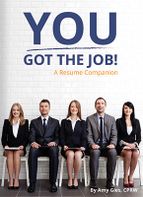
When it comes to your resume, you’re probably so concerned about what to include and add that you don’t think about what to remove. However, you most likely have quite a few unnecessary words that can be eliminated to avoid fluff or distraction. Keyword optimization is a very important part of your resume, and your resume won’t be as optimized as it should be if there are extra or unneeded words.
Its time to remove these 25 words from your resume. Here is a list of the top words to remove from your resume so that you can stand out, impress, and get the offer that you’ve been waiting for!
What Should Not be Included In a Resume?
When recruiters first look at your resume, there are a few things they usually look for. Mainly, if you’ve already done the type of work required for the new position and whether your holistic skill-set aligns with what the company needs to grow through the position. Anything else is seen as an extra bonus that helps to color your professional experience and strengthen your case.
Indeed, your soft skills can stand out as a big asset, and your ability to problem-solve and adapt will make you stand out from the competition. However, in trying to showcase yourself from all angles, you may end up diluting your pitch and signal to the recruiters that you are trying too hard to look qualified with fluffy words, industry jargon, and “template” keywords that seem inauthentic.
Instead, focus on showcasing how you can help the company grow in your position with the skills you’ve acquired over time. Make your resume into a targeted pitch for the position you want. Instead of listing skills, showcase how they’ve helped your previous company grow. Anything else that doesn’t make a good case on why you would be the best person for the position or detracts from clarity should be avoided and not included in your resume.
Overall, make sure that you remove the following from your resume:
- Old and irrelevant high school and college information
- Short-lived jobs that don’t showcase your strengths
- Low GPSs and test scores
- Photos
- Personal information (preferences, politics/philosophy, marriage status, etc.)
Unnecessary Words to Remove From Your Resume
Now that you have more perspective on how to present your resume in a way that will make you stand out as a candidate, how do you go about fixing the technical aspects, or removing unnecessary words from your resume?
First Step: Determine what words DO belong in your resume. If you haven’t already tailored your resume to the position you’re applying for, check out our blog on How To Tailor Your Resume to the Job Description. This is a great place to start because it will ensure you have all the necessary keywords Applicant Tracking Software (ATS) will be looking for in your resume. When it comes to resume optimization, keywords are key. But, it’s also important to make sure you don’t have unnecessary or unprofessional words taking up space and distracting from the point of your resume.
Once you’re sure your resume has all the necessary keywords and skills required, it’s time to get into the editing phase and determine what can be taken out. Start with the fluff and filler words. These words don’t actually impress but tend to highlight insecurity. A recruiter will take one look at your resume and think you’re trying too hard to market yourself. Think of your resume as prime real estate. If you include too many unnecessary words, they will dilute the market value of your resume.
Fluff Words To Remove From Your Resume
Certain words are overused in resume writing, meaning recruiters are sick of them and don’t find them at all helpful. They don’t tell the hiring manager anything about you as an employee. Some common buzzwords to avoid are:
- Strategic
- Passionate
- Creative
- Expert
- Motivated
- Focused
- Ninja, Jedi, Rockstar, and any other quirky titles
Weak Action Verbs to Remove From Your Resume
What is an action verb? A term that expresses an action. Action verbs can help paint a vivid picture, but they can also be incredibly overused and vague. What does the term utilized or assisted actually tell you? Nothing. To put it bluntly, recruiters are tired of reading phrases like “responsible for” or “assisted with.” They come across them constantly and they don’t add any real value to your resume.
It’s okay to use them sparsely and only when you are describing a job responsibility. However, if you find yourself constantly writing them that’s when it’s time to pump the breaks. A little creativity can go a long way when it comes to resume writing. For example, instead of saying assisted, try facilitated, collaborated, or arranged. Some weak action verbs to exclude from your resume include:
- Utilized
- Assisted
- Supported
- Responsible for
- Organized
Cut Down on the Hyphens
Words like results-oriented and detail-oriented are better explained rather than stated. Show hiring managers your achievements through quantitative data and your responsibilities rather than through a vague phrase that doesn’t show any real value. Employers expect you to pay attention to details and be a self-starter anyways, so it doesn’t need to be specifically mentioned.
- Results-oriented
- Self-starter
- Detail-oriented
Other Words That Aren’t Necessary on Your Resume
The following words are overused and generally unhelpful. Leaving them off your resume won’t lower your chances of getting hired but will only help you get your dream job in the long-run. Remember, you can “show” all of these words without having to state them. That’s exactly what recruiters want to see.
- Objective
- References Available
- Hard Worker
- Problem Solver
- Team Player
Remove Pronouns from Your Resume
Make sure your resume does not include pronouns. Don’t refer to yourself in the first person, as it is unprofessional. You’ll have an opportunity to introduce yourself in your cover letter.
- I
- Me
- You
- She
- He
It’s important to note that your resume should tell a story of your work history and how you can contribute value to your new position. It should show a recruiter your abilities through clearly presented achievements and specific outcomes that make you irreplaceable. Any words that take away from this message should be removed.
When you remove these 25 words from your resume it becomes more optimized and gets rid of the extra unneeded words.
If this seems too over your head and you’d like support through the resume-writing process, these are some of our top reasons why you should hire a professional resume writer.
If you think you need more help with your resume, contact Capstone Resume Services today to schedule a personal resume services consultation. Our experienced resume writers will have a conversation with you to learn about your experience in order to effectively showcase it on your professional resume and help you land your dream job.

